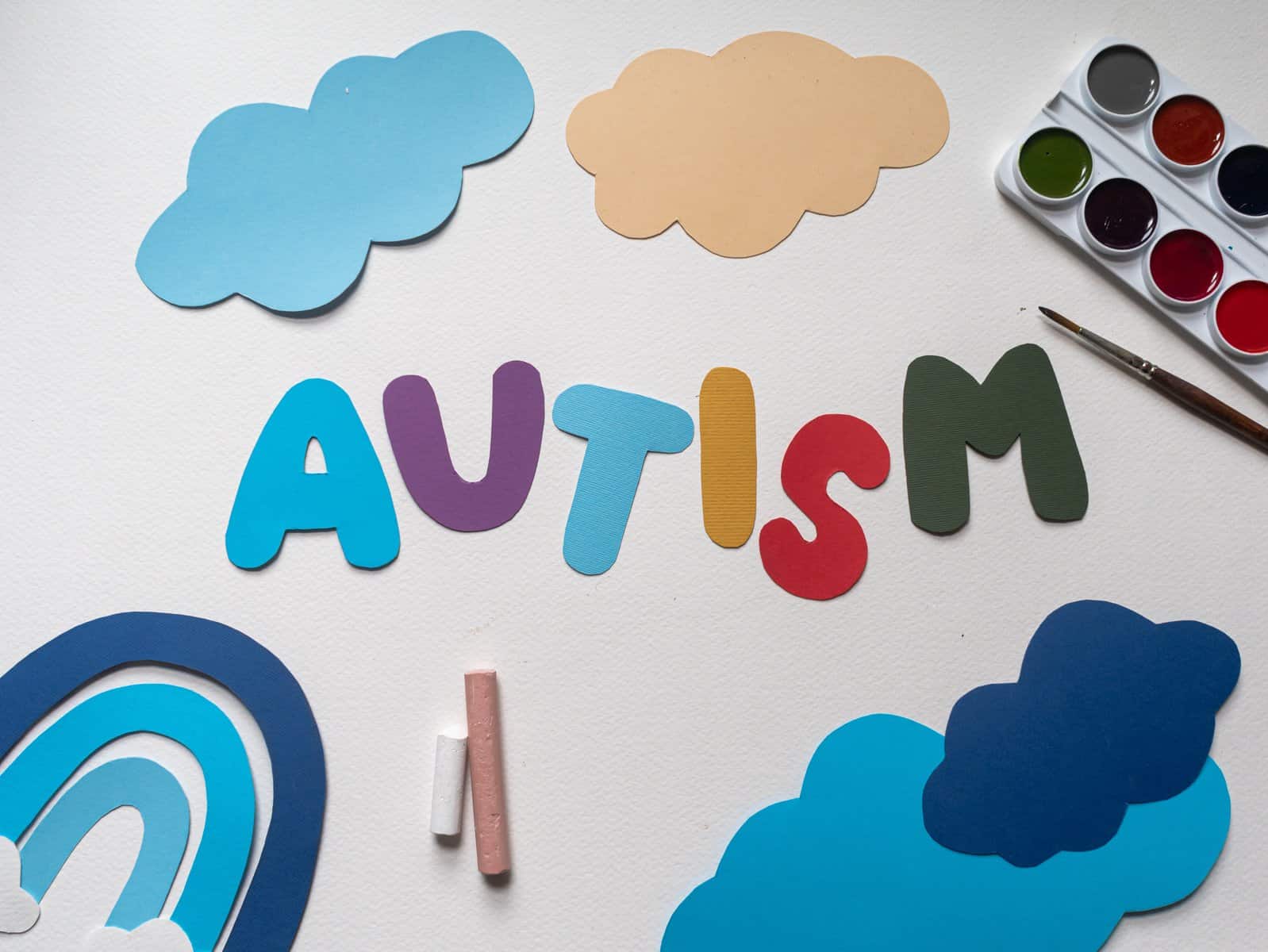What Is Asperger Syndrome?
Asperger Syndrome (AS) is a neurological disorder on the autism spectrum. It is a “spectrum disorder” because people who have it can have a wide range of symptoms and abilities. Some people with AS are very high-functioning, while others need more support. In this article, I’ll discuss the symptoms of Asperger Syndrome, how it is diagnosed, and what treatments are available.
Learn more: What Is Autism Spectrum Disorder?
What Is Asperger Syndrome
Asperger Syndrome (AS) is a type of autism spectrum disorder. It affects the way people interact and communicate with others, as well as their sensory processing. People with Asperger Syndrome often have difficulty understanding social cues and may be overly focused on specific interests or activities. They also tend to struggle in typical social situations, such as starting conversations or keeping them going. People with AS may also have difficulty understanding others’ feelings, and their own emotions as well. It is important to note that everyone with Asperger Syndrome is different, and will display different behaviors associated with the condition. However, people with AS often share similar traits like difficulty interpreting social cues, difficulty making conversation, difficulty understanding others’ emotions, an intense focus on a specific interest, and sensory processing issues.
What Are the Symptoms of Asperger Syndrome
The most common symptoms of Asperger Syndrome are difficulty with social interactions, lack of empathy, difficulty forming friendships, rigid thinking patterns, limited interests and activities, difficulty with non-verbal communication such as body language or facial expressions, and a tendency to talk about topics that others find boring. Asperger Syndrome can also affect a person’s behavior, which may be seen as overly stubborn or resistant to change. In addition to these symptoms, people with Asperger Syndrome may also have physical clumsiness and struggles with sensory processing. They may avoid loud noises, bright lights, certain textures in clothing, and other sensations that can cause discomfort. Individuals with Asperger Syndrome may also struggle with anxiety, depression, and/or obsessive-compulsive behavior.

How Is Asperger Syndrome Diagnosed
Asperger Syndrome is usually diagnosed by a doctor or mental health professional who has experience diagnosing autism spectrum disorder. A diagnosis typically involves observation, interviews with the individual and family members, and a review of medical history. Your doctor may ask about social interactions and behaviors, family background, developmental milestones, physical health, sleep patterns, communication abilities, and any other symptoms the individual may have. Depending on the individual, additional assessments such as IQ tests, hearing screening, or psychological testing may be recommended to confirm a diagnosis.
Is Asperger Syndrome a DSM-5 Diagnosis?
No, Asperger Syndrome is no longer a DSM-5 diagnosis. The fifth edition of the Diagnostic and Statistical Manual of Mental Disorders (DSM-5) released in 2013 eliminated Asperger Syndrome as a separate diagnosis from autism spectrum disorder (ASD). Instead, all individuals on the autism spectrum are now diagnosed with autism spectrum disorder, which includes individuals with Asperger Syndrome.
Although the diagnostic criteria have changed, individuals receiving an Asperger’s diagnosis prior to the DSM-5 release are still considered to have autism spectrum disorder according to the new criteria. Additionally, the term “Asperger Syndrome” is often used informally in reference to individuals who possess some or all of the traits associated with Asperger Syndrome but do not qualify for an autism spectrum disorder diagnosis.
What Causes Asperger Syndrome
The exact cause of Asperger Syndrome (AS) is unknown, and it’s possible that many different factors could contribute to its development. Some research suggests that the condition may be linked to a combination of genetic and environmental influences. It is believed that some people may have a genetic predisposition for AS, but this does not necessarily mean that it is inherited. Rather, it means that the condition may be caused by a combination of genetic and environmental factors.
For instance, some researchers suggest that people with AS may have an unusually sensitive nervous system or increased neural connectivity that makes them more prone to certain kinds of sensory input. This heightened sensitivity to stimuli can lead to difficulty processing information and can lead to the types of behaviors that are associated with AS. It’s also possible that changes in brain chemistry could play a role in the development of AS.
In addition, there may be some environmental factors that contribute to the development of AS as well. For instance, research suggests that exposure to certain toxins during pregnancy, such as lead, mercury, and polychlorinated biphenyls (PCBs), may increase the risk of developing AS. Other environmental factors may include early life stress or traumatic experiences, both of which can have a negative impact on brain development.
What Treatments Are Available for People With Asperger Syndrome
Fortunately, there are numerous treatments and therapies available for people with Asperger Syndrome. Occupational therapy can help to improve motor skills, while physical therapy may be beneficial in improving balance and coordination. Special education programs and social skills groups can also provide invaluable assistance in helping individuals learn to effectively interact in a variety of social settings. Speech-language therapy is another important treatment for people with Asperger Syndrome, as it can help them learn to communicate more effectively. Medication may also be prescribed to treat certain symptoms associated with the disorder.

How Can I Help My Loved One Who Has Been Diagnosed With Asperger Syndrome
It can be very difficult to watch a loved one struggle with Asperger Syndrome. The important thing is not to try to “fix” things for them, but instead, provide your support and help them find ways to best cope with their condition. Be patient and understanding of the challenges they face in everyday life. Offer guidance if they need help finding resources, such as counseling or therapy. Encourage them to get involved in activities that they enjoy and feel comfortable with. Show your understanding and appreciation for their individual challenges and abilities. Let them know that you care about them and are there for them throughout their journey. Always be a good listener, without judgment or criticism, when they want to talk. Above all, remember that each individual’s experience with Asperger Syndrome is unique, and be sure to show your love and acceptance no matter what.
What Research Is Being Done on Asperger Syndrome
Researchers continue to study Asperger Syndrome in order to better understand it and find ways to help those who are affected. Scientists have made great strides in identifying the genetic roots of the disorder, and they are also studying brain structure and function in individuals with Asperger Syndrome. Additionally, medical professionals are researching potential treatments for the symptoms associated with Asperger Syndrome, such as medications, behavior therapies, and social skills training. All of these research efforts are helping to provide a better understanding of the disorder and to give those with Asperger Syndrome the best possible chance for success in life. In addition to medical treatments, scientists are also looking into other interventions that could be used to benefit individuals with Asperger Syndrome, such as lifestyle modifications, nutritional supplements, and even alternative therapies. The ultimate goal is to help those with the disorder live their lives in the best way possible.

When To Seek Professional Help for Asperger Syndrome
If you or someone close to you have been exhibiting signs of Asperger Syndrome, it may be time to seek professional help. Professional assessments and diagnoses can provide an accurate understanding of the condition and what treatments are available.
Therapists specializing in Asperger Syndrome can provide support for individuals experiencing its symptoms. Cognitive behavioral therapy (CBT) is one of the most commonly used therapies for Asperger Syndrome. This type of therapy focuses on improving an individual’s behaviors, thoughts, beliefs, and feelings related to their condition. CBT helps individuals learn coping strategies that can be applied in real-world situations. It also assists in improving communication skills and a better understanding of social cues.
Medication can also be prescribed to help control the symptoms of Asperger Syndrome. When it comes to medications for Asperger Syndrome, many selective serotonin reuptake inhibitors (SSRIs) are often prescribed. These are antidepressants that increase the amount of serotonin in the brain, which can help with symptoms such as anxiety and depression. Medications like Prozac (fluoxetine), Zoloft (sertraline), and Paxil (paroxetine) are common SSRIs prescribed for Asperger Syndrome.
It is important to remember that everyone responds differently to treatment and there is no cure for Asperger Syndrome. However, with the right support and treatment, individuals can learn how to manage the symptoms of Asperger Syndrome.
Conclusion
Asperger Syndrome can have a profound impact on the lives of those affected, as well as their family and loved ones. Fortunately, there are many treatments and therapies available that can help manage the symptoms of the disorder and improve quality of life. It is important to remember that everyone experiences Asperger Syndrome differently and each individual will require different types of treatment. If you or someone close to you are exhibiting signs of Asperger Syndrome, seek professional help as soon as possible in order to get the best possible outcome. With the right support and treatment, individuals with Asperger Syndrome can lead full, happy lives.

